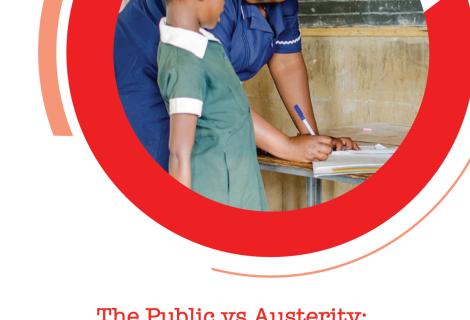
Public Service Wage Bill (PSWB) Research Report. The Public vs Austerity: Zimbabwe
The trends leading to public sector low wages and constraints on the wage bills in Zimbabwe.
The education and health sectors are crucial in an economy as they are responsible for building the human capital resource of a nation. High standards of education and health enhance the productivity of a country’s workforce and contribute positively to the development of a nation. However, wages are generally regarded as low in the education and health sectors of Zimbabwe. This has implications on the quality of education and health services. With low wages, these sectors will have difficulties in attracting, retaining and motivating the best minds to work in these sectors. In addition, lower wages in these sectors give a signal in the labour market that these sectors are less productive, resulting in new job market players preferring other professions outside the education and health sectors. Lower wages in the education and health sectors also imply inequality and poverty among workers in these sectors compared to workers of similar skill in other sectors.
Meanwhile, government policy documents have already acknowledged the need for improving remuneration for the health and education sectors. For example, the National Development Strategy 1 provides that Government would strive to achieve improved human resources performance by implementing single spine remuneration scheme for health care workers, including instituting non-monetary incentives. In the 2021 National Budget Statement, Government made a commitment to continuously review the remuneration of civil servants guided by macro fundamentals and capacity of the Budget. However, what is critical is to assess whether this commitment is also reflected in the actual practice.
It is this background that forms the context under which ActionAid Zimbabwe envisaged this study. It is intended to establish the extent to which education and health sector workers are motivated to carry out their tasks. It is also intended to assess the effects on the motivation levels and possible mechanisms that can strengthen the education sector in the medium to long term.